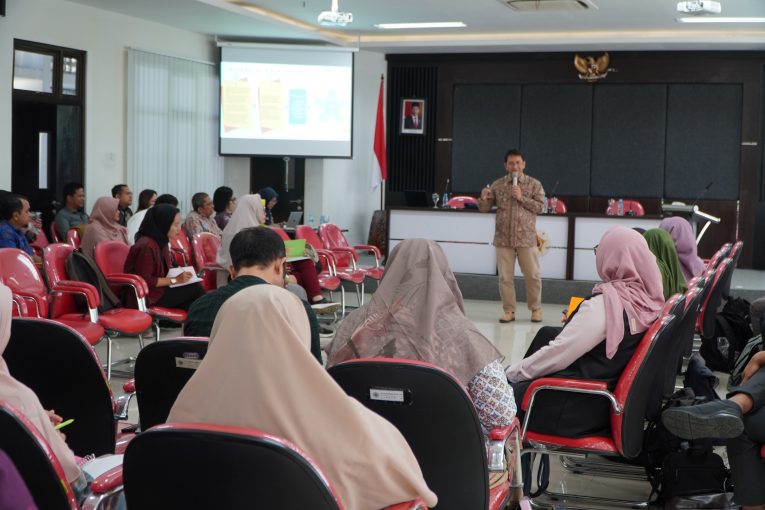
The Faculty of Philosophy at Universitas Gadjah Mada (UGM), through its Unit for Managing Mandatory Curriculum Courses (MKWK), in collaboration with the Association of MKWK Institutions and Lecturers Across Indonesia (AKD MKWK SI), held a training session for lecturers and prospective lecturers of Pancasila and Citizenship Education from August 9 to 10, 2024. The event was attended by 88 participants from 40 universities across Indonesia.
The goal of the training was to equip MKWK lecturers and prospective lecturers with the skills to develop lesson plans that are relevant to the challenges of the times and align with national education standards. This event also highlighted UGM’s, especially the Faculty of Philosophy’s, commitment to advancing Pancasila and Citizenship Education, which are vital in shaping the character of students in Indonesia.
“Pancasila is not merely an ideological foundation, and Citizenship Education is not just an ideological guide but also an ethical and moral compass in every aspect of national life. This shows the importance of these courses,” said Dr. Rr. Siti Murtiningsih, S.S., M.Hum., Dean of the Faculty of Philosophy.
Dr. Murtiningsih emphasized the importance of innovation and creativity in developing lesson plans for Pancasila and Citizenship Education to ensure that the learning process is engaging, relevant to the current context, and connects to the students’ fields of study.
“Innovation and creativity are essential for educators to ensure that the foundational character building for students proceeds well. I am confident that after participating in this training, you will gain valuable insights that will help you fulfill your role as educators,” she explained.
The training covered several key topics, including the General Policy for Implementing MKWK in Higher Education, the Urgency of Pancasila Education, Current Issues, and Local Content in Universities, the Historical Development of Pancasila Thought, and Pancasila as a Foundation for the Development of Science and Technology. Participants also received training on assessment methods for MKWK courses and syllabus development techniques.
Dr. Arqom Kuswanjono, a lecturer at the Faculty of Philosophy and Chairman of AKD MKWK SI, highlighted the need to strengthen national character through the commitment of university leaders, strengthening MKWK institutions, improving the quality of lecturers, revising curricula, fostering synergy between MKWK and other courses, and improving the academic atmosphere.
He explained that such strengthening is crucial for character development. “What we expect from MKWK is critical thinking, creativity, collaboration, communication, and deep and comprehensive thinking,” Dr. Kuswanjono said.
In another session, Dr. Heri Santoso discussed the Learning Outcomes of Pancasila and Citizenship Education courses and the innovations in making Pancasila and Citizenship Education both enjoyable and meaningful in higher education. He explained that innovation can be applied in various aspects, such as the curriculum, teaching methods, facilities, and the learning environment.
This training was designed according to the standards set by the Directorate General of Higher Education (Dikti), with a total duration of 32 hours. The training included both in-person and online sessions, independent assignments, and a presentation session where participants showcased their work, including the development of Lesson Plans (RPS), teaching materials, and educational videos. Through these methods, participants were given the opportunity to develop practical skills that could be directly applied in their teaching practices.
